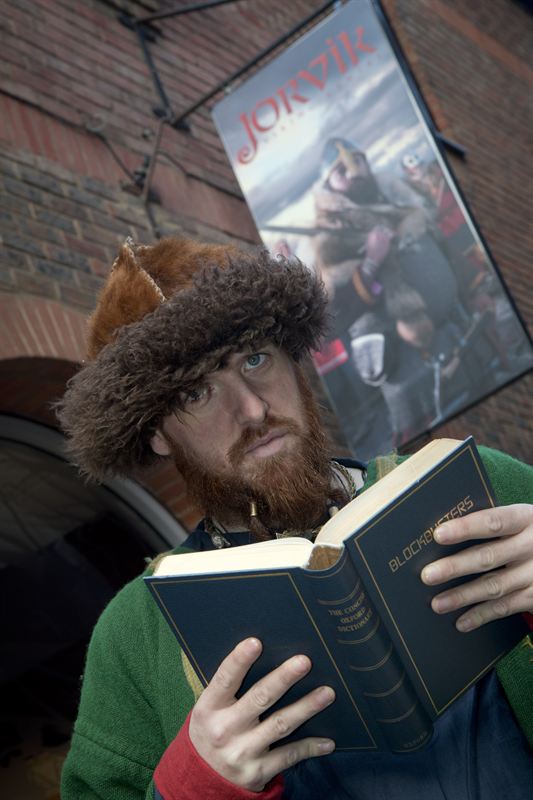The Norse origins of some of the most common words in the English language will be explored at a lecture taking place as part of this year’s JORVIK Viking Festival – revealing some surprising words that have their origins in the language of the Vikings, from ‘them’ and ‘their’ to ‘egg’ and ‘window’!
In the ‘Vikings In Your Vocabulary’ lecture taking place on Tuesday 16 February at York Council Chambers, language experts Richard Dance and Sarah Pons-Sanz will explore the Viking words that invaded the English language when the Norse settlers arrived on our shores, and the evidence of their spread from the North to be used in the whole kingdom.
Old Norse – the language of the Vikings – and Old English, which was used by the resident Anglo-Saxons, had very similar Germanic roots, so perhaps unsurprisingly, they shared some common words, but according to Richard Dance, the Norse versions quickly infiltrated the language in the North, travelling south throughout the Middle Ages.
“Before the Vikings, our ancestors would have referred to a window as an ‘eagthyrel’, which roughly translates as an ‘eye hole’, and indeed, the ‘thyrel’ continued to be evident in words like ‘nostril’, which is the nose hole! However, given that we don’t employ eyehole cleaners to give our glass panes a polish, it is clear that the Viking word, ‘vindauga’ – ‘wind eye’ – was adopted and became ‘window’,” explains Richard.
Other examples include adding the ‘gg’ into ‘egg’ which would previously have been ‘ey’ – and the way that it took some time to be integrated into ‘Middle English’ is demonstrated in a publication by Caxton in the 15thcentury. A story relates how a Yorkshireman asked a woman in London for some ‘eggs’, but confused, as this Northern term had not yet reached the big city, she simply replied, “I’m sorry, I don’t speak French!”
“This is just one example which shows how these Viking words gradually crept into common usage – there are other examples in the works of Chaucer where he was happy to use the ‘new’ word ‘they’, but he still wrote the Old English version of ‘their’ and ‘them’ – ‘heir’ and ‘hem’,” says Richard. “That said, some words didn’t make it across the whole country – ‘gate’ is commonly used only as far south as Peterborough to mean ‘street’, like Coppergate and Stonegate, where it’s from Old Norse, and is a different word from the ‘gate’ in ‘gateway’.”
Vikings In Your Vocabulary takes place on Tuesday 16 February 2016 at 2.30pm at York’s Council Chambers at Guildhall, with tickets available for £4.50 for adults and £3.50 for children from www.jorvik-viking-festival.co.uk . Other lectures during the Festival include the Helen Thirza Addyman Lecture, this year looking at King Canute as portrayed in Norse poetry, presented by the University of York’s Matthew Townend, and Coffin Fit, the story of the Swinegate Skeletons. More details for all events are available online at www.jorvik-viking-festival.co.uk .
Top 10 Viking words that the English speaking world uses on a daily basis
- They, their, them – the ‘th’ at the start of these words is a Viking addition to the personal pronoun.
- Window – from vindauga , or ‘wind eye’
- Husband – originally linked to property, rather than a wife, from hús (house) and bóndi (occupier and soil tiller)
- Dirt – from drit (excrement)
- Cake – from kaka
- Law – from lagu
- Ransack – from rannsaka , which means ‘to search a house’
- Egg – the Norse ‘g’ sound was added to the Old English ‘ey’
- Skirt – from skyrta , which was a long shirt
- Anger – in old Norse, angr
JORVIK Viking Festival itself runs from 15-21 February 2016 in venues throughout the city, from free encampments in Parliament Street and Coppergate, to the grand fiery finale in the Eye of York on Saturday evening (20 February).

